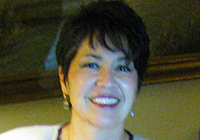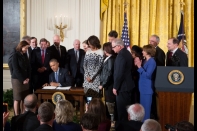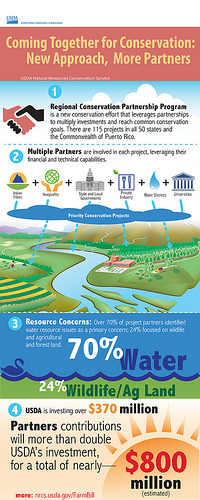Thank You
For your submission
-

A few weeks ago, in the midst of the holiday season, President Obama showcased some cutting-edge gadgets in the Roosevelt Room of the White House. But they were not new tablets, smartphones, or digital cameras. They were protective suits, state-of-the-art cooling vests, and germ-killing gels — all tools that could make the difference between life and death in the fight against the Ebola epidemic in West Africa.
Designed in partnership with the U.S. Global Development Lab, these innovations will not only speed up our response on the ground, but also protect health workers on the frontlines of the epidemic. They embody our Agency’s new model of development — one grounded in mobilizing the energy and creativity of a new generation of students, inventors, and entrepreneurs to bend the curve of progress.
-
At some point, most Americans will need to take time away from work to handle what life throws their way. Whether it’s a serious personal illness, a loss of a beloved family member, or the overwhelming joy of becoming a parent, these are everyday situations that American workers should not have to compromise for their job. That's why President Obama unveiled his proposal for paid leave yesterday.
With 43 million American citizens -- many middle class -- without access to paid family leave through their employers, President’s Obama’s new policy will not only help the average working-class person, but will also help our nation’s piggybank as a whole.
With little effect on overall expenses, paid sick leave is a strong policy that has been shown to increase productivity, morale, and overall public health.
So basically, there’s a lot to love about this.
Here's what people are saying about it:
-
This week, the President continued to preview some of the big ideas that he'll propose in his State of the Union address on January 20th. He made announcements on education, on cybersecurity, and on access to reliable broadband Internet across the country. For all of you who just can't bear to wait until the State of the Union, this one's for you. That's January 9th to January 15th or, "The Little Circle Thing."
-

Here at the White House, we're dedicated to making President Obama's administration the most open and accessible in history. That's why, for the second year in a row, we thought it'd be a gouda idea to brie-unite a certain cast of characters to help us bring back a tradition that dates back to the days of President Andrew Jackson.
-
This week, House Republicans put at risk critical funding that the Department of Homeland Security (DHS) needs to keep our nation safe by insisting on a series of amendments to overturn the President’s immigration accountability executive actions.
The GOP plan would roll back the enforcement priorities DHS has put in place to ensure that our nation’s law enforcement priorities are focused on felons, not families. House Republicans should not be playing politics with funding for DHS, an agency whose mission is focused on protecting our nation from dangerous criminals, as well as national security and terrorist threats.
Instead of proposing new ideas for how to address our broken immigration system, House Republicans are playing games with the resources we need to protect our country. They are keeping us from moving forward on critical investments in cybersecurity, disaster recovery, counterterrorism efforts, and incident response. And they are only perpetuating the current broken immigration system that everyone agrees must be fixed.
-
"Please remember that you have someone here that believes in you and is proud to have you as leader of the United States."
In a letter to the President, Curtis T. wrote about his husband, Mark, who he'd been with for 19 "quite exceptional" years. Under the old health care system, Mark hadn't been able to get health insurance due to a preexisting heart condition.
-
Earlier today, President Obama took a quick trip to Charmington's Café in North Baltimore, Maryland to talk with three women -- Amanda, Vika, and Mary -- before he announced new steps his Administration is taking to help working families across the country.
As the President noted at the café today, 43 million Americans still don't get paid sick leave. "That means that no matter how sick they are, or how sick a family member is, they may find themselves having to choose to be able to buy groceries or pay the rent, or look after themselves or their children," he explained.
-
January 15, 2015
03:19 PM ESTBuilding on the momentum created by the White House Summit on Working Families, today the President announced additional steps the Administration is taking to help working families. The President is calling on Congress to give millions of workers the chance to earn up to seven days per year of sick time. He is expanding his support of state efforts to provide paid parental leave through a $2.2 billion dollar budget proposal to help states cover the initial costs of state paid leave plans, and by making $1 million in existing funds available to help states and municipalities conduct feasibility studies.
Finally, he is bringing the federal government’s paid leave policies closer in line with those of industry-leading companies by signing a Presidential Memorandum that will ensure that most federal employees have access to at least 6 weeks of paid sick leave when a new child arrives by allowing new parents to advance sick leave. He will also propose that Congress pass legislation to provide federal workers with an additional 6 weeks of paid maternity and paternity leave following the introduction of a new child into the home.
-
Ed. note: Yesterday, Valerie Jarrett wrote the following post on LinkedIn, breaking the news on the actions the President took today to help working parents. See the original post here.
Anyone who has ever faced the challenge of raising or supporting a family, while holding down a job, has faced tough choices along the way, and likely felt stretched between the financial and personal needs of their family.
How many working parents know that sinking feeling from sending their child off to school with a fever? How many Americans have to show up to work when battling an illness even when they know they won’t be at their best, it will lengthen their recovery time, and they may likely spread their sickness to others? And how many moms and dads have been denied the ability to bond with their newborn, or to care for an aging parent, all because they could not afford to miss work? These are real, significant moments in life that nearly everyone faces at some point. The last thing we should do is add guilt, fear, and financial hardship on working parents as they try to do what’s right – while keeping their job.
Tomorrow, President Obama will announce several initiatives that will spur action and move us toward our goal of fully supporting and empowering working parents in both their roles as workers and parents.
-
Watch President Obama's Interview with YouTube creators live on Thursday, January 22 at 5:00 p.m. ET on WhiteHouse.gov/Live and YouTube.com/WhiteHouse.

Every year since 2010, we’ve invited people around the country to ask President Obama their questions after his State of the Union address. You’ve asked about everything from the economy, to immigration reform, to the Affordable Care Act... and even suggestions on baby names.
After President Obama addresses the nation on Tuesday, January 20, he’s once again turning to YouTube to discuss the policies laid out in the speech and answer your questions. This continues efforts by the President and his administration to speak directly to the American people online, and we're always looking for new ways to do just that.
That's why, this year, we’re trying something a little different:
We’re inviting a handful of YouTube creators to the White House to talk with the President in person, and you can watch it all live on Thursday, January 22. YouTube creators Bethany Mota, GloZell, and Hank Green will interview President Obama about the issues care they most about and what they’re hearing from their audiences.
What do you want the creators to ask the President? Follow the White House on YouTube, then use #YouTubeAsksObama on your social media channels -- some of your questions may be asked during the interview.
Make sure you tune in to our enhanced State of the Union on January 20 at 9 p.m. ET. Start asking your questions now, and then watch the YouTube interview live at 5p.m. ET on Thursday, January 22 to find out if your questions were asked.
-
January 15, 2015
10:20 AM EST
Throughout the 19th and 20th centuries, American business owners, scientists, and entrepreneurs have driven our economy forward and kept the United States leading the way in innovation and global competition. A thread woven through the fabric of our national identity has been having the most productive and highly skilled workforce in the world.
A 21st-century America should be no different.
In order to help revitalize a struggling American economy in the post-Depression 1930s, the Rural Electrification Act called for a push to electrify rural areas. Connecting otherwise hard-to-reach communities through electricity and telephone services gave them the ability to more easily compete on both the national and global economic stage. It was an idea as deeply important to the viability of 20th-century rural America as telecommunications and broadband Internet access is today.
For most Americans, the click of a mouse is all it takes to open the door to a world of up-to-the-minute information and global commerce. In remote communities in particular, broadband brings with it new access to health care, education, and economic opportunities that have not been available in the past. But there are still many for whom this is not yet a reality.
-
Earlier today, President Obama traveled to Cedar Falls, Iowa to share how this small city has done some big things to deliver lightning-fast Internet to the entire metro area. This afternoon, he toured the Cedar Falls Utilities headquarters to see how technicians connect homes and businesses to the area's fiber optic network, and called for more communities to deliver this vital resource to their economy.
So here are five things you need to know about today’s announcement.
1. Fiber optic Internet is really, really fast.
The average American broadband customer has around 10 Mbps, which means downloading an HD movie would take around 22 minutes. Once reserved for research universities and major telecommunications carriers, fiber optic Internet is now available direct to homes and businesses. And along with it comes blazing speeds of around 1 gigabyte -- or 1,000 megabytes -- per second. That's around 100 times faster than the average American Internet connection, and brings down the time to download that same HD movie to around eight seconds. That’s right: eight seconds.
-
This week is a big one for cybersecurity.
President Obama is using the week before his State of the Union to highlight the importance of cybersecurity and to outline the steps this Administration is taking to tackle this problem head-on. As many companies and government agencies know far too well, the cyber threat is only increasing in breadth, pace, sophistication, and impact. The events of the past year, including numerous breaches into major retailers, a widespread encryption vulnerability known as Heartbleed, and the recent destructive and coercive cyber attack against Sony Pictures Entertainment, clearly demonstrate the need to accelerate collective efforts to increase our nation’s cybersecurity and to preserve and protect our core values as a nation.
-
Ed. note: This is cross-posted on the U.S. Department of Agriculture's blog. See the original post here.
When USDA unveiled the new Regional Conservation Partnership Program last year, I said that this effort would pioneer a new era of conservation. As of today, the program is doing just that — leveraging an unprecedented three-quarters-of-a-billion-dollar investment in projects to preserve clean land and water and create new jobs across the country.
One of the innovative programs in the 2014 Farm Bill, the Regional Conservation Partnership Program brings a wide variety of new partners together — from private businesses, to universities, to local and tribal governments, to non-profit organizations and more — to develop their own action plans and to pledge their own resources to the project. Local organizations are in the driver’s seat, setting priorities and developing conservation projects that make sense for their communities.
The response to this new approach to conservation projects was overwhelming. Earlier this year, when local partnerships submitted their plans to USDA, they requested more than six times the amount of available funding in the first round. This incredible response is a call to action and it shows how much need there is for a program like RCPP.
-
We live in a digitally connected world. Almost all business transactions, public utilities, or security measures rely on networks that are connected to the Internet. That is why cyber threats pose an enormous challenge to our country. Whether it's rogue hackers, organized criminals, or state actors, our public and private networks are facing an unprecedented level of cybersecurity threats.
Since taking office, President Obama has led efforts to better prepare our government, our economy, and our nation as a whole for the growing cyber threats we face. Yesterday, he traveled to the National Cybersecurity and Communications Integration Center (NCCIC) in Arlington, VA to review what we've done and what he'll do next to defend our nation's systems.
-
The United States is now the largest oil and natural gas producer in the world, and developing these cleaner-burning fuel sources to light and heat American homes and businesses is crucial to the President’s energy strategy. But while these important energy sources produce less carbon pollution overall, methane leaks throughout the oil and gas system are fueling climate change — and wasting valuable fuel that should be captured and used.
Methane — the primary component of natural gas and the third-largest source of U.S. greenhouse gas emissions — is a potent climate pollutant, trapping 25 times as much heat as carbon pollution over the course of a century. The good news is emissions from the oil and gas sector are down 16 percent since 1990. However, without additional action, emissions from this sector are projected to rise more than 25 percent by 2025.
That’s why, today, the Obama administration is announcing an ambitious new goal to cut methane emissions from the oil and gas sector by 40-45 percent from 2012 levels by 2025. Achieving this goal would save up to 180 billion cubic feet of wasted natural gas in 2025 — enough to heat more than 2 million homes for an entire year.
-
January 13, 2015
08:06 PM ESTSenior White House and Cabinet officials today hosted a delegation of leaders of eight Swiss companies in the Roosevelt Room to discuss opportunities to spur new investments and create jobs for American workers. As part of the meeting, the companies announced their plans to invest about $3 billion into their combined U.S. operations in 2015. These new job-creating investments build on the roughly $140 billion in Swiss foreign direct investment (FDI) stock that makes Switzerland the sixth-largest source of FDI in the United States and a crucial commercial partner.
Many of the executives, who were joined today by senior Swiss government officials, also announced their firms’ plans to expand or launch apprenticeship programs in the United States, reinforcing President Obama’s goal of doubling registered apprenticeships in the U.S. over the next five years. For details on the companies and their specific announcements, please see the Commerce Department’s fact sheet.
Today’s discussion, hosted by Senior Advisor Valerie Jarrett, National Economic Council Director Jeff Zients, Commerce Secretary Penny Pritzker, and Labor Secretary Tom Perez, was an important opportunity to engage with these companies on the mutual benefits of job-creating FDI while discussing the additional steps we can take together to make the United States an increasingly competitive location for companies from around the world to locate, grow, and hire.
-
Watch on YouTube | Share on Twitter/Facebook
Fast Internet isn't just a convenience or a luxury -- it's a necessity for economic progress. Unfortunately, too many of America's communities lack access to high-speed broadband Internet.
But Cedar Falls, Iowa -- a town of only about 40,000 people -- has broadband that's nearly 100 times faster than the national average. (That's on par with cities like Hong Kong and Tokyo.) And it's because the people of Cedar Falls came together to make strategic investments for their citizens and businesses, and brought new competition to their broadband market.
Tomorrow, in Cedar Falls, President Obama will announce actions to help more communities get access to fast and affordable broadband.
-
Today, I am delighted to announce the launch of a series of regional forums to engage older Americans, their families, caregivers, advocates, community leaders, and experts on aging on the key issues affecting older Americans. These forums are designed to help provide input and ideas for the upcoming 2015 White House Conference on Aging.
Over the past several months, we have been preparing for the 2015 White House Conference on Aging along with the Conference’s Executive Director, Nora Super, by establishing a Conference website, and participating in a number of listening sessions and meetings across the country.
This will include regional forums, the first of which will be in Tampa, FL on February 19. Subsequent forums will be held in Phoenix, AZ on March 31; Seattle, WA on April 9; Cleveland, OH on April 27; and Boston, MA on May 28.
-

"Thank you so very, very much for giving people like me, who have a pre-existing condition, Obamacare!"
- &lsaquo previous
- …
- 4
- 5
- 6
- 7
- 8
- 9
- 10
- 11
- 12
- …
- next &rsaquo






















